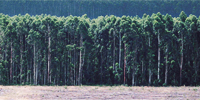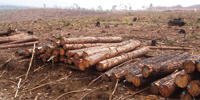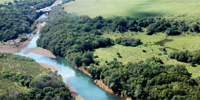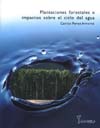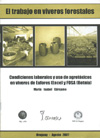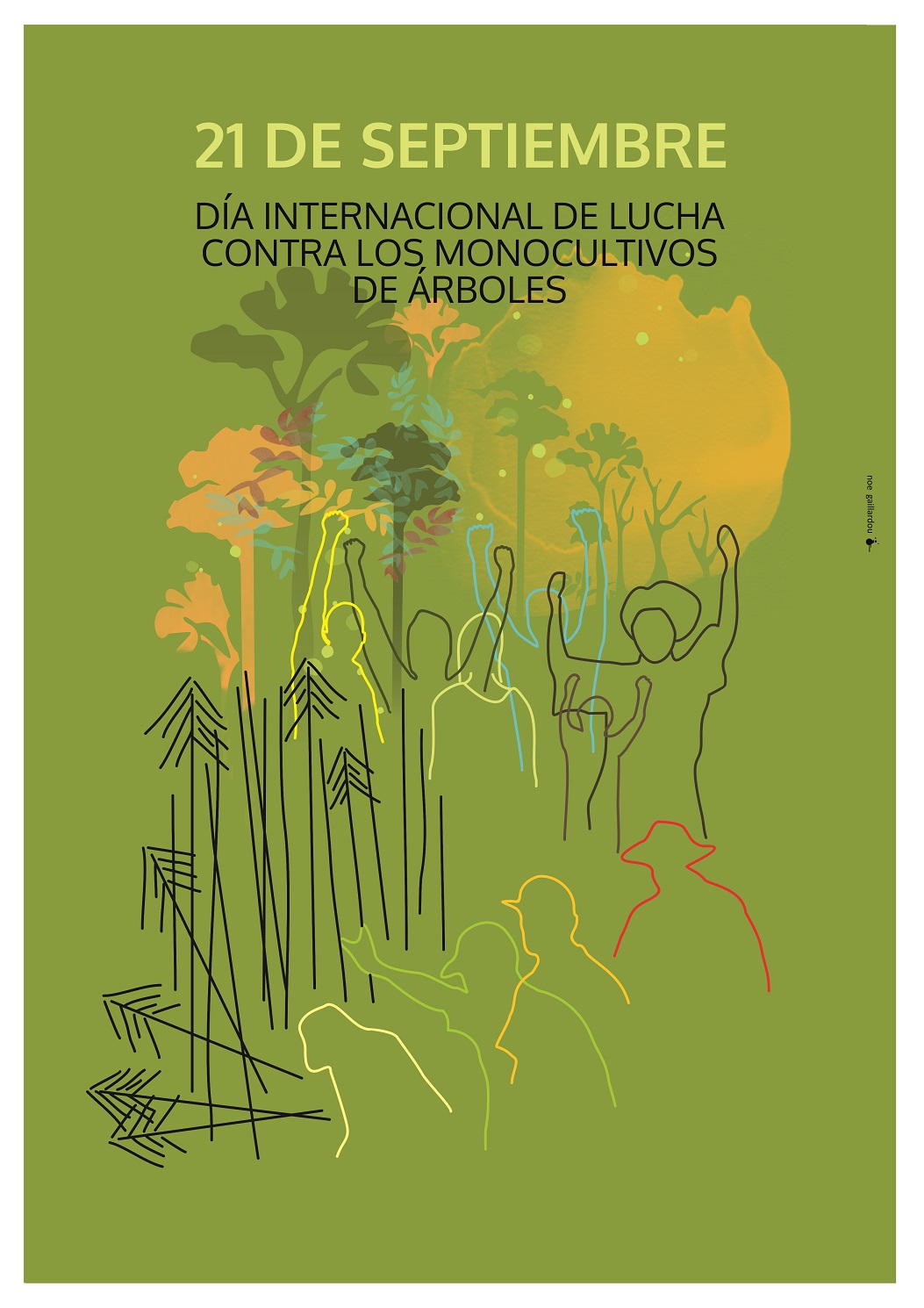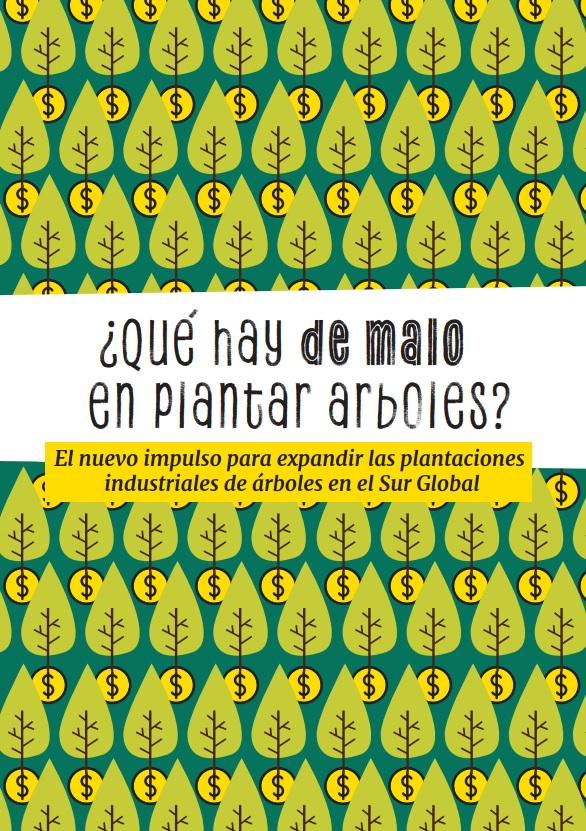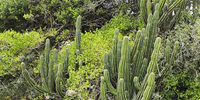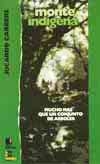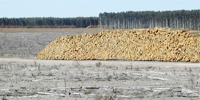For years now WRM has been documenting the social and environmental impacts of monoculture tree plantations. However, so far we had no information on the starting point in this chain: the nurseries where millions of plants intended for plantation are produced. Recently research has just been concluded on the labour conditions and use of agrochemicals in the nurseries of the two main forestry companies in Uruguay certified by the Forest Stewardship Council (FSC): Eufores (Ence-Spain) and FOSA (Metsa Botnia-Finland). (1)
Both companies’ nurseries use the most advanced technology in this area and basically produce eucalyptus clones. Cloning is done from branches of the so-called “mother-plants” using them to produce cuttings, small stalks with a pair of leaves. This production is carried out using specialized equipment and once the saplings are produced they remain in the nursery until they are well rooted, subsequently to be moved outdoors for weathering for the plantations.
Although the technology for plant production is “advanced” (including modern irrigation installations, greenhouses and a broad agrochemical package), it is not quite so “advanced” regarding labour conditions.
The first thing to draw attention is outsourcing. Approximately 80 percent of both companies’ workforce, occupying 50-70 people (Eufores) and 130 people (FOSA), work under this system. Outsourcing is an externalization of labour that implies breaking the direct labour relationship with the company that takes on production. In this “triangular labour relationship” people are hired by a company (contracting company) but in fact work for another company, on their premises, under their direction and discipline, thus diluting the figure of the real employer.
According to the workers, “outsourcing is a way of avoiding possible problems with the union and with the workers in general” as it divides them, both regarding benefits and labour projection, thus conspiring against the possibility of worker organization. Insofar as outsourcing condemns those hired to seasonal work, labour insecurity and functional tenure – they will always be “unskilled workers” and paid as such although they may be carrying out specialized tasks such as cloning eucalyptus – among the workers the illusion persists that they will become direct employees. On occasions this leads to their withdrawal from trade union activities for fear of being “pinpointed.”
Union organization has been difficult in both companies. At Eufores, the union was only established four years ago, in spite of company opposition. However, once established, Eufores unleashed its persecution against the trade union leader, who reported that he felt “personally victimized.” Even so, Eufores was certified. It has only been during the past year that the company seems to have accepted the fact and the leader reinstated to his normal workstation.
In FOSA the creation of the trade union is very recent (August 2006), but its members are almost all workers from the contractor company. However pressure is felt and some do not join for fear of being considered as “trouble-makers” by the company and that this might eventually prevent them from becoming direct FOSA employees. In spite of this situation, this company was also certified.
Another aspect showing the companies’ lack of social responsibility is that, as a principle, the health of the eucalyptus plants comes before people’s health. In order to avoid the saplings from becoming infected by pests and diseases, a very high amount of agrochemicals is applied. In Eufores, two products banned by FSC are applied: Fundazol (Benomil, an endocrine disruptor, producing genetic mutations, which is probably carcinogenic for humans) and Flonex (Mancozeb, banned because it is carcinogenic). Both nurseries use Captan, a fungicide banned in Finland in August 2001 because it is extremely toxic: it is considered to be carcinogenic, produces contamination of soil and groundwater table, and is very toxic to fish, also affecting frogs, birds and water fowl.
The workers are continually exposed to agrochemicals in a closed environment impregnated with such products. Furthermore, the water from washing out the backpacks or other implements used for spraying agrochemicals is spilled out in the same place. Because they are unable to take a shower before going home as the restrooms have no showers, the workers spread contamination to their family insofar as they go home with the same clothes they worked in. In this regard, workers reported that over 90 percent of the children of women working in the nursery suffer from allergies, spasms and asthma.
As for medical checkups, these are nonexistent in FOSA. Eufores does do some, but the workers do not trust the results and are trying to get monitoring done by an organization that is independent from the company, such as the Ministry of Public Health.
Some noteworthy labour conditions in the Eufores and FOSA nurseries are: the isolation of the location – preventing displacement during the lunch break that, in the case of FOSA is not paid – the difficult access to the restrooms – they are distant from the workplace – and their capacity is totally inadequate in addition to the above mentioned lack of showers; the absence of extractors in enclosed places – only the plants have air-conditioning – and the high temperatures there, in addition to the omission – on the part of FOSA – of providing articles necessary for the job, such as latex gloves – the company only provides rubber gloves as they are cheaper, but this hinders manipulation.
Cases of skin, eye, hand and neck allergies and allergies in other parts of the body, with rashes, itching and swelling, are frequent in workers exposed to toxic products such as fungicides, insecticides, hormones and chlorine.
The issue of female labour warrants special mention. The forestry companies emphasize the generation of jobs for women, but the jobs they offer are mostly for unskilled labourers which, as we have seen, are outsourced with no prospects for betterment. There are some administrative posts, but few women hold managerial positions – they are generally clerks.
Maternity is hard to sustain under the nurseries’ labour regime. There are no day-care centres and the distance and lack of transport lead to very long working hours away from the children. During pregnancy these harsh working conditions prevent workers from reaching the authorized term for leave – 7 and a half months pregnancy – even though they prefer to work as long as possible because prenatal leave implies much lower income. However, the prevailing conditions – temperatures that can rise above 40ºC and long working hours either sitting or standing – oblige them to take prenatal leave at between months 4 and 6 of their pregnancy.
It is interesting to note that the certification of these two companies had already been questioned in an investigation carried out by WRM (2). Now this investigation on these companies’ nurseries is added to such questioning. In fact, in her summary on the issue, the researcher concludes that “these two certified companies in no way show themselves to be ‘environmentally responsible, socially beneficial and economically viable’ (as defined in the FSC mandate). On the contrary, they enjoy this seal at the cost of the work and health of their workers and of the environment of all Uruguayans.
(1)”Labour conditions and use of agrochemicals in two tree nurseries”, August 2007, RAPAL-Uruguay (only in Spanish) http://www.guayubira.org.uy/trabajo/viveros.pdf
(2)“Greenwash. Critical analysis of FSC certification of industrial tree monocultures in Uruguay”, April 2006, World Rainforest Movement, http://www.wrm.org.uy/countries/Uruguay/book.html

